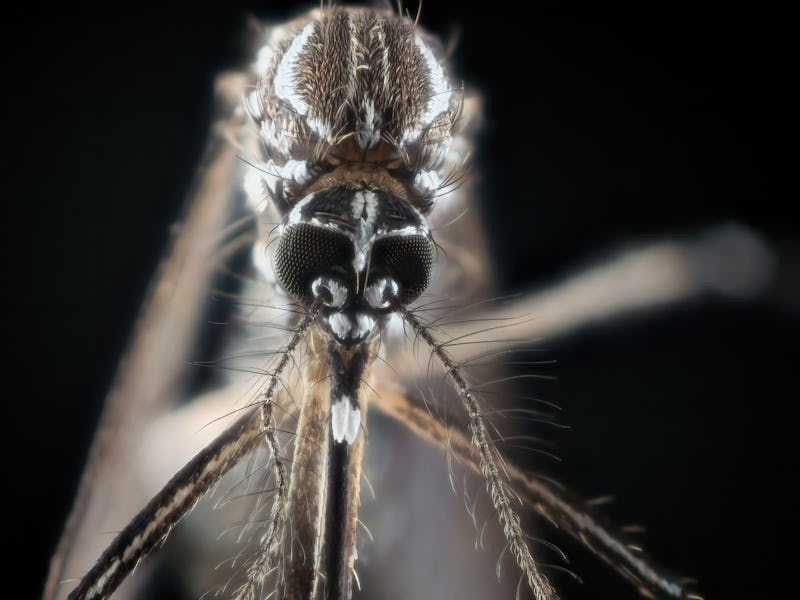A “super-resistant” gene mutation in mosquitoes may increase the risk of dengue, a study finds
This finding could spell trouble for efforts to control the disease.

Fighting mosquito-borne diseases often feels like a race against time. Pesticides keep the insects in check, but they often stop working once the bugs evolve to become resistant to the chemicals.
Now, researchers believe they’ve found a link between a gene mutation and super-resistance to a certain insecticide in Southeast Asia, leaving scientists concerned about future dengue outbreaks in the region. The findings were published Wednesday in the journal Science Advances.
Here’s what you need to know first — Insecticides work by acting on a specific target site in the mosquito’s body. For example, the synthetic pesticide pyrethroid — made with compounds similar to those in Chrysanthemum flowers — works by targeting voltage-gated sodium channels (Vgsc). These channels exist in neuron and muscular membranes and help to “excite” or activate cells.
Lead author Shinji Kasai, a researcher at the National Institute of Infectious Diseases in Tokyo, explains how the pyrethroid molecule bind to the voltage-gated sodium channels. Spraying pyrethroid results in an “unstoppable” influx of sodium ions into the insect’s cells and creates “abnormal” cell activation.
There are roughly 2000 amino acids — molecules that form proteins — in these voltage-gated sodium channels. In mosquitoes resistant to insecticide, these molecules can convert to other types of amino acids — a process known as “amino acid substitution.”
“Amino acid substitution(s) sometimes prevent pyrethroid molecules from approaching [the] Vgsc, resulting in resistance,” Kasai says.
A closeup of the Aedes aegypti mosquito.
What scientists found — Scientists collected samples of the Aedes aegypti mosquito from Vietnam and Cambodia and extracted their DNA, allowing the researchers to assess the mosquito’s genetic susceptibility to pyrethroid. Aedes aegypti mosquitoes are known to carry dengue.
The researchers narrowed in on a particularly worrisome allele — a gene mutation — known as L982W, which was detected in more than 78 percent of the mosquitoes. The presence of L982W indicates an amino acid substitution that increases resistance to pyrethroid molecules in the voltage-gated sodium channels (Vgsc).
While L982W had been identified in previous research, this study links it to high pesticide resistance for the first time.
“We found that L982W confer[s] high level of pyrethroid resistance,” Kasai says.
Even more troubling, when L982W was found alongside another gene mutation, F1534C, the combined effects produced 1000-fold resistance to the insecticide. Kasai says this is a “much higher level of pyrethroid resistance than any other mutations ever reported.” This kind of genetic crossover carries serious implications for “super-resistant” gene mutations in the future.
“There is no denying the possibility that the super-resistant alleles of Vgsc found in this study will be further recombined with each other to produce even stronger resistance genes,” Kasai’s team writes in the paper.
Why it matters — Dengue is a common mosquito-borne disease, especially in Southeast Asia.
Anywhere between 100 and 400 million people worldwide get infected each year, though the majority of cases are mild or asymptomatic. But more severe cases include serious side effects like high fever and joint pain. Severe cases can lead to death, but early detection and medical intervention significantly lower the mortality risk.
According to the paper, dengue outbreaks have increased 30-fold over the past fifty years, partly due to the warm-thriving mosquito expanding its habitat due to climate change. There is no known cure for dengue — though a vaccine is available — so efforts to control the disease have focused on culling the mosquito population through pesticides like pyrethroid.
Therefore, understanding the molecular mechanisms behind insecticide resistance will help combat dengue, too. Kasai says there is no known link yet between Aedes aegypti’s resistance to pyrethroid and their susceptibility to dengue.
“However, if we cannot control pyrethroid resistance mosquitoes by insecticide, the number of mosquitoes increases,” Kasai says.
More mosquitoes raise the risk of diseases spreading among humans, so Kasai says the mutations in their research could increase future dengue outbreaks in Southeast Asia. The paper notes that mosquitoes around Phnom Penh — the capital of Cambodia — exhibited an “extremely high level of resistance to several pyrethroids.”
Phnom Penh, the capital of Cambodia, is lit up at night. The study found high percentages of pesticide-resistant mosquitoes in Cambodia and Vietnam.
What’s the solution? —But Kasai says there are four key ways we can combat insecticide resistance in Aedes aegypti mosquitoes.
First, Kasai proposes companies and individuals spraying insecticide in Southeast Asia switch to more effective insecticides other than pyrethroid.
“Insecticide [companies] have recently developed excellent alternative insecticides, so I hope these insecticides are registered in these countries and available as soon as possible,” Kasai says.
Second, to reduce the risk of mosquitoes becoming super-resistant to one pesticide, different kinds of insecticides should be rotated in and out.
Next, scientists have also experimented with releasing Wolbachia-infected mosquitoes to curb disease. Wolbachia is a bacteria found in many insects but not Aedes aegypti mosquitoes. When male mosquitoes infected with Wolbachia attempt to reproduce, the female mosquito will not lay eggs, thereby reducing the overall mosquito population.
Finally, Kasai says better efforts to monitor insecticide-resistant genes and prepare for the “invasion” of mosquitoes in the coming years will also be crucial.
What’s next — This isn’t the end of Kasai’s research — far from it.
He plans to expand the scope of his research on super-resistance in Aedes mosquitoes, including whether the combination of resistant genes could also hinder the effectiveness of other insecticides.
“I want to design new pyrethroid-like insecticides that overcome super-resistant Vgsc,” Kasai says.